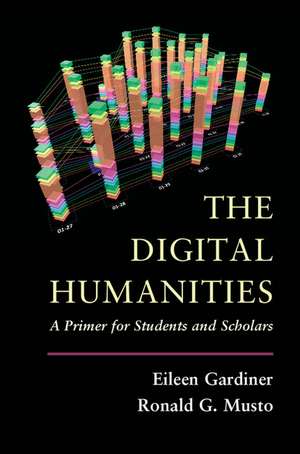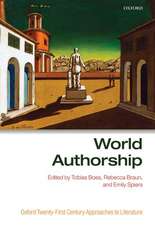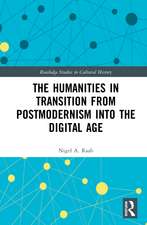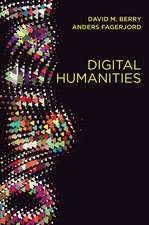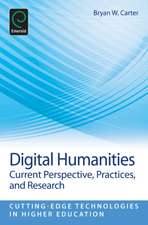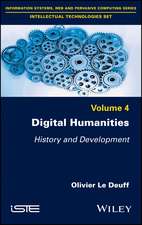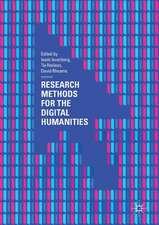The Digital Humanities: A Primer for Students and Scholars
Autor Eileen Gardiner, Ronald G. Mustoen Limba Engleză Paperback – 24 iun 2015
| Toate formatele și edițiile | Preț | Express |
|---|---|---|
| Paperback (1) | 159.81 lei 22-36 zile | |
| Cambridge University Press – 24 iun 2015 | 159.81 lei 22-36 zile | |
| Hardback (1) | 719.39 lei 43-57 zile | |
| Cambridge University Press – 29 iun 2015 | 719.39 lei 43-57 zile |
Preț: 159.81 lei
Nou
30.58€ • 32.01$ • 25.30£
Carte disponibilă
Livrare economică 17-31 martie
Specificații
ISBN-10: 1107601029
Pagini: 285
Ilustrații: 14 b/w illus.
Dimensiuni: 150 x 226 x 18 mm
Greutate: 0.39 kg
Editura: Cambridge University Press
Colecția Cambridge University Press
Locul publicării:New York, United States
Cuprins
Recenzii
'Here is the rare publication that offers an insider's deep understanding of the humanities as well as the practitioner's experience of the digital. A wealth of theoretical and technical information is on offer, including an invaluable compendium of resources for the aspiring researcher. But the book's crucial insight is that the fundamental issues shaping this arena are cultural, not technological.' Gail Feigenbaum, Getty Research Institute
'This remarkably intelligent and lucid book explains how the emergence of the digital world has created remarkable opportunities for gains in knowledge through the practice of the humanities. This book, providing a useful appendix and glossary, will lead students and scholars alike to think afresh about why they consider knowledge, its sources, and its representation the way they do.' Nicola Courtright, Amherst College
Descriere
The Digital Humanities is a comprehensive introduction and practical guide to how humanists use the digital to conduct research, organize materials, analyze, and publish findings. It summarizes the turn toward the digital that is reinventing every aspect of the humanities among scholars, libraries, publishers, administrators, and the public. Beginning with some definitions and a brief historical survey of the humanities, the book examines how humanists work, what they study, and how humanists and their research have been impacted by the digital and how, in turn, they shape it.
It surveys digital humanities tools and their functions, the digital humanists' environments, and the outcomes and reception of their work. The book pays particular attention to both theoretical underpinnings and practical considerations for embarking on digital humanities projects. It places the digital humanities firmly within the historical traditions of the humanities and in the contexts of current academic and scholarly life.
